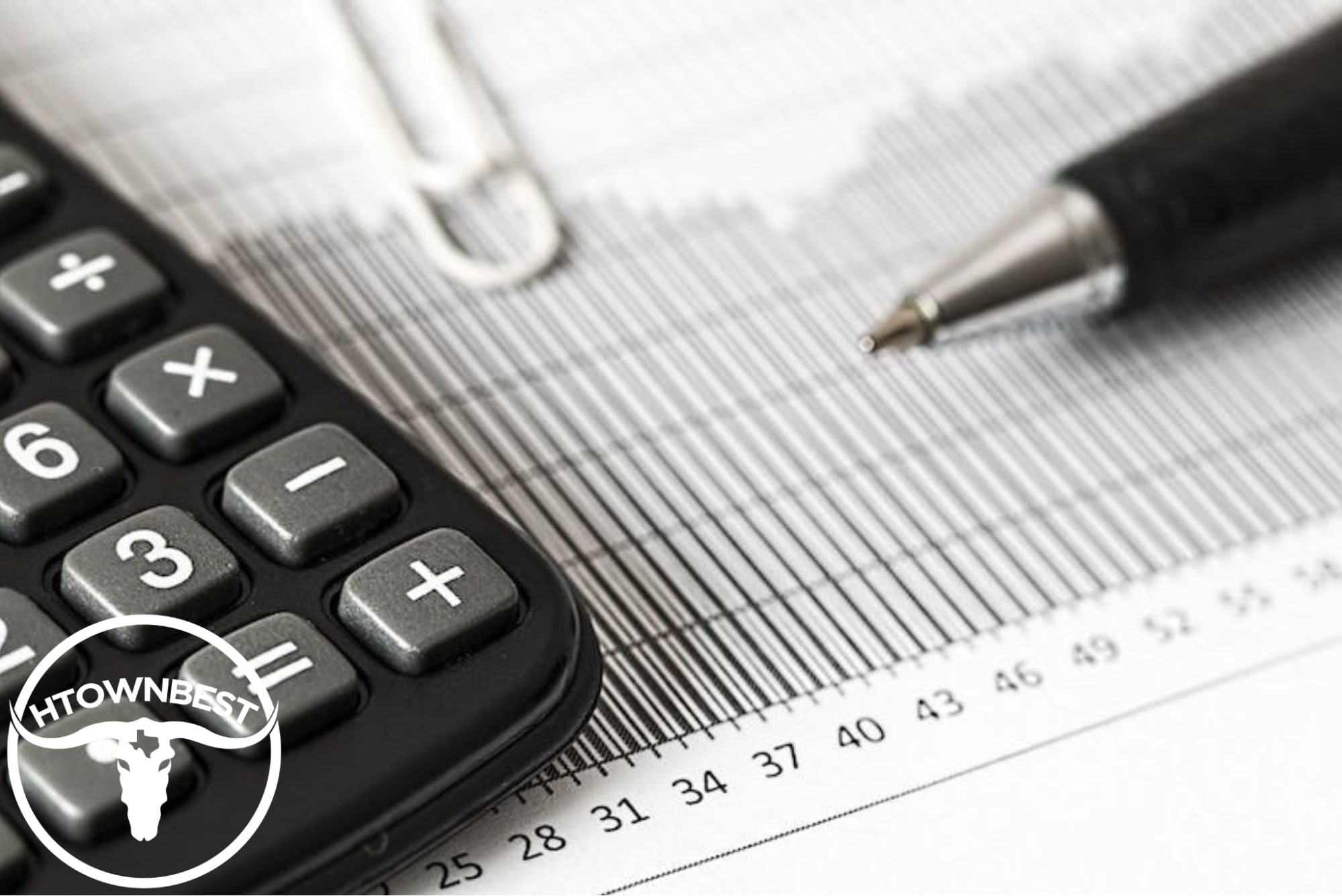How much is property tax in Houston?

- What is property tax?
- How much do you pay in property tax in Houston?
- How is property tax calculated in Houston?
- What is the timeline for the property tax process in Houston?
- How do I pay property tax in Houston?
- What if my tax bill is late?
- How high is Houston’s property tax compared to other cities?
- Are there property tax exemptions?
- Where is property tax used?
Image Source: Pixabay on Pexels
Are you a Houston homeowner or considering buying property in the city? If so, it’s important to understand the ins and outs of property tax in Houston.
While it may not be the most exciting topic, having a clear understanding of how property tax works can save you from surprises and ensure you’re able to plan and budget accordingly.
In this article, we’ll break down everything you need to know about property tax in Houston, including how it’s calculated, important deadlines, exemptions, and more.
What is property tax?

Property tax is a fee that you have to pay to the local government for owning a property.
The amount you pay is usually based on the value of your property, and it’s calculated by taking the assessed value of your property and multiplying it by the tax rate set by the local government.
The assessed value of your property is typically determined by the local government and is based on factors like property size, location, and condition. The tax rate is also set by the local government and can vary from year to year.
How much do you pay in property tax in Houston?

Harris County collects property tax from its property owners at a rate of 2.31% of the assessed fair market value of the property. This is just the average rate calculated from all the cities that make up the county.
Property tax rates in Houston like other cities in the county change year per year. Houston calculates its property taxes by imposing a dollar value per $100 valuation of the property.
In 2019, this dollar value was approximately $0.57. So, if you had a house worth $100,000 at that time, you would have paid property taxes amounting to $570.
The value stays relatively constant. The property tax rate in Houston in 2022 was approximately $0.53 per $100 assessed property value.
On average Houston imposes property tax at 1.12% of the property’s assessed fair market value, according to data from Smart Asset, a location-based automated tax calculator. *
So in Houston for example, if your home is valued at $100,000, then you would pay an estimated value of $1,122 as your annual property tax.
How is property tax calculated in Houston?

Property tax is calculated by a 3-step system put in place to ensure the equal distribution of the tax burden among property owners.
- Appraisal of Property Value
Each year, the value of taxable property in each county is determined by an appraisal district. The chief appraiser oversees the district and answers to a board of directors.
- Contesting the Value
If there are any disputes about the value of your property, an appraisal review board (ARB) can help resolve them.
If you are a property owner and you think that the property tax amount you are charged is incorrect, you can ask for a reassessment and appeal the value determined by the Harris County Tax Assessor’s office.
To do so, you need to get in touch with the Harris County Tax Assessor’s Office.
- Determining the Tax Rate
Your local county, cities, school districts, and other special districts decide how much money they will spend for the year.
This decision determines the tax rate they will set and the total amount of taxes you and your neighbors will need to pay.
What is the timeline for the property tax process in Houston?
| Dates | Procedures |
| January 1 | Property appraisal begins in Houston. |
| This means that the property’s use on that date, market conditions, and the property’s ownership determine its value, whether it is taxable, qualifications for exemptions, and who is responsible for paying the tax. | |
| January 1 to April 30 | Applications for exemptions and tax relief ensue. |
| The appraisal district handles applications for tax exemptions, agricultural and timber appraisals, and other tax relief. | |
| May | You can contest the value of your property. |
| The appraisal review board starts hearing protests from property owners who think their property values are incorrect or who feel they were unfairly denied an exemption or appraisal. The ARB is an independent panel of citizens who handle protests about the appraisal district’s work. Once the ARB finishes its work, the chief appraiser gives each taxing unit a list of taxable property known as the appraisal roll. | |
| September or October | Tax rates are determined and tax collection starts. |
| The elected officials of each taxing unit adopt tax rates for their operations and debt payments. Tax collection begins in October and November as tax bills are sent out. | |
| January 31 | Deadline of tax payments |
| Property owners have until January 31 of the following year to pay their taxes. | |
| February 1 | Late penalties are imposed. |
| Penalties and interest charges accumulate on most unpaid tax bills. If property taxes become delinquent, taxing units may initiate legal action to collect them. |
How do I pay property tax in Houston?

In Houston, property tax payments can be made through a variety of methods to provide convenience for taxpayers.
- You can make your property tax payments online through the Harris County Tax Office website or calling them on the phone at +1 713-274-8000 and pay using a credit card.
- Payments can also be made in person at the Harris County Tax Office, which has multiple locations throughout the city. You can pay with cash, check, money order, or credit card.
- Additionally, if you are unable to pay your property tax bill in full, you may be eligible for a payment plan. The Harris County Tax Office offers an Installment Payment Plan to help property owners set up a payment plan based on their financial situation.
The program offers flexible payment terms ranging from 12 to 36 months and can help you avoid penalties and interest charges if you can’t pay the amount in full.
What if my tax bill is late?

To ensure that you don’t miss the deadline, check with your local tax offices if you haven’t received a tax bill by February 1st of the current year.
Make sure that your name and address on file with the appraisal district are correct as the taxing unit uses this information from the appraisal roll.
By law, you have at least 21 days to pay your property tax bill after it is mailed to you. If the bill is mailed after January 10, the delinquency date is postponed.
This means you have until the first day of the next month that will give you at least 21 days to pay the bill. For instance, if your tax bill is mailed on January 15th, the delinquency date will be March 1st. You can find the delinquency date on the bill itself.
How high is Houston’s property tax compared to other cities?

The national rate for property tax sits at 0.99%, while the rate sits at 1.66% in Texas. Houston’s 1.12% fairs well when compared to these numbers.
Below is a table comparing Houston’s rates with other significant cities and counties in Texas. Houston’s tax rate is relatively lower compared to other major cities and counties in the state.
| Location | Median Home Value | Median Annual Property Tax Payment | Average Effective Property Tax Rate |
| Houston | $107,500 | $1,209 | 1.12% |
| Travis County | $347,700 | $6,783 | 1.95% |
| El Paso County | $214,500 | $4,280 | 2.00% |
| Collin County | $337,200 | $6,750 | 2.00% |
| Denton County | $297,100 | $6,384 | 2.15% |
| Hidalgo County | $90,000 | $1,959 | 2.18% |
| Dallas County | $193,900 | $4,306 | 2.22% |
| Tarrant County | $209,600 | $4,736 | 2.26% |
| Fort Bend County | $277,600 | $6,337 | 2.28% |
| Bexar County | $171,200 | $4,024 | 2.35% |
A complete list comparing property tax rates with other cities in the U.S.A. can be found here.
Although the property tax rates in Houston are manageable, because of the relatively higher rates in the majority of the cities in Harris County, the county’s property tax rate as a whole averages much higher.
At 2.31%, Harris County’s property tax rate more than doubles the national average at just 0.99%.
Are there property tax exemptions?

In Houston, there are several property tax exemptions available to eligible property owners. These exemptions are designed to provide some relief from property tax burdens and are meant to benefit certain groups.
- The homestead exemption is for homeowners who use their home as their primary residence. This exemption provides a reduction in the taxable value of the property, which translates into a lower property tax bill.
In 2022, a $40,000 reduction was used. Homeowners must apply for this exemption and meet certain eligibility requirements, such as owning and occupying the home on January 1st of the tax year.
- Another exemption available in Houston is the over-65 exemption, which is available to homeowners who are 65 years or older. This exemption provides an additional $10,000 relief on top of the homestead exemption.

- Disabled veterans who have a service-connected disability can also apply for a property tax exemption in Houston. The amount of relief varies depending on the extent of the veteran’s disability.
- Veterans with a disability rating of 100% are exempt from all property taxes.
- Veterans with a 70% to 99% disability rating are granted a $12,000 tax exemption.
- Spouses of first responders killed in active duty are also entitled to a total exemption from property tax. However, this exemption only applies if the surviving spouse has not remarried since the death of the first responder.
- If charitable and religious organizations, public spaces, and private schools meet the criteria set by the Texas government here, then they are also exempt.
- Energy-efficient upgrades to homes are 100% tax free and their value won’t be reflected in the total value of the property in the tax calculation.
Where is property tax used?

Once the property tax is collected, it goes to various local taxing units in Houston, such as the county, city, school districts, and special districts. These units then use the tax revenue to fund their respective operations, such as schools, law enforcement, infrastructure development, and other public services.
A significant portion of the property tax revenue is allocated to public schools, as the state of Texas has a public school finance system that relies heavily on local property tax revenue.

In addition to funding public schools, property tax revenue is also used to pay for police and fire protection, road maintenance and construction, water and sewer services, and other vital services provided by local governments.
Houston also allocates a portion of the property tax revenue to fund several public programs, like affordable housing programs, job training, and small business development initiatives.





